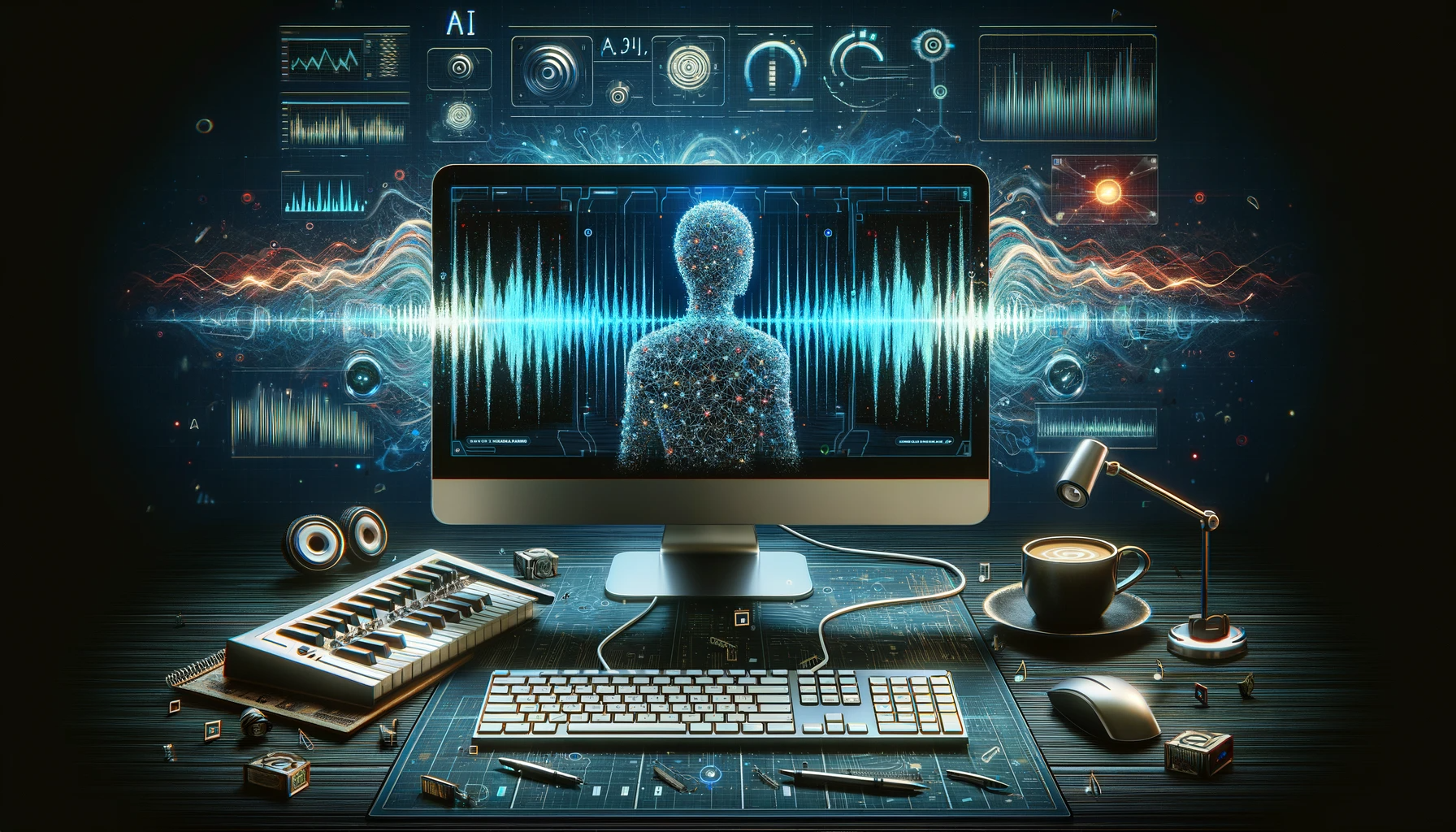Hey - welcome to this article by the team at neatprompts.com. The world of AI is moving fast. We stay on top of everything and send you the most important stuff daily.
Sign up for our newsletter:
A remarkable breakthrough in artificial intelligence has been achieved by British researchers with the creation of CoAtNet, an AI model capable of deciphering sensitive information, including passwords, from mere keyboard keystroke sounds. This cutting-edge technology boasts an impressive 95% accuracy rate in decoding capabilities.
The foundation of this research lies in the discovery that every key pressed on a keyboard generates a distinct acoustic signature. CoAtNet harnesses this principle by capturing these unique keystroke sounds through a microphone, subsequently analyzing and translating them into readable text and passwords, opening new frontiers in data security and AI applications.
The Mechanics of Sound-Based Password Decryption

At the heart of this development is the use of audio recordings to record keystrokes. The concept revolves around the distinct sound each key, such as a MacBook Pro keyboard, makes when pressed. AI models can discern these sounds through sophisticated training, thereby identifying the correct key pressed. This acoustic side-channel attack exploits the unique acoustic signatures of different keys.
The Role of AI in Audio-Based Hacking
The role of AI in these acoustic side-channel attacks is monumental. AI can effectively record keystrokes by analyzing the audio environments, including the subtle differences in typing style and the specific sounds of a laptop keyboard. Though seemingly out of a sci-fi novel, this process is grounded in the advanced capabilities of generative AI and machine learning algorithms.
Implications for Sensitive Information Security
The implications of such attacks are significant. As AI models grow more adept at deciphering keystroke sounds from various keyboards, including the distinct MacBook Pro keyboard, the risk of sensitive information escalates. The shift key, regular keys, and even biometric systems integrated into modern keyboards can potentially be compromised, posing a serious threat to data security.
The Research Behind the Technology
This technological advancement is not merely theoretical. Research conducted by institutions like Durham University and spearheaded by experts such as Prof. Feng Hao has shown tangible results. Studies published in reputable journals have demonstrated the accuracy rates of these AI models in identifying passwords based solely on keyboard sounds. These studies underline the nuanced understanding of AI's capabilities in audio environments and the real-world applicability of such attacks.
The Growing Concern of Cybersecurity Experts
Cybersecurity specialists closely monitor these developments, including those at Cornell University and Royal Holloway University. The potential for AI to decrypt passwords from simple audio recordings of keyboard sounds poses a new challenge in safeguarding data. With each keystroke, be it on a regular key or a MacBook Pro's shift key, emitting distinct sounds, the task of securing passwords becomes increasingly complex.
Mitigating the Risks
Mitigating the risks associated with acoustic side-channel attacks involves a multi-faceted approach. Various strategies are being explored, from enhancing biometric systems to revising the design of keyboards to minimize distinct keystroke sounds. Moreover, awareness and education about the potential risks of audio-based attacks, especially during activities like a Zoom call where built-in microphones are active, are crucial.
The Future of Password Security
As we navigate this new terrain, the conversation around password security is evolving. The need for robust, AI-resistant biometric passwords and enhanced encryption methods is more pronounced than ever. The study of acoustic side-channel attacks represents a technical challenge and a pivotal moment in our understanding of cybersecurity in an AI-dominated era.
In conclusion
The ability of AI to decrypt passwords using only keyboard sounds marks a significant milestone in both artificial intelligence and cybersecurity fields. As researchers continue to study and develop countermeasures against such attacks, it's imperative for individuals and organizations to stay informed and proactive in safeguarding their sensitive information. Though inconsequential, the keystrokes we make every day now carry a weight far beyond their immediate purpose.